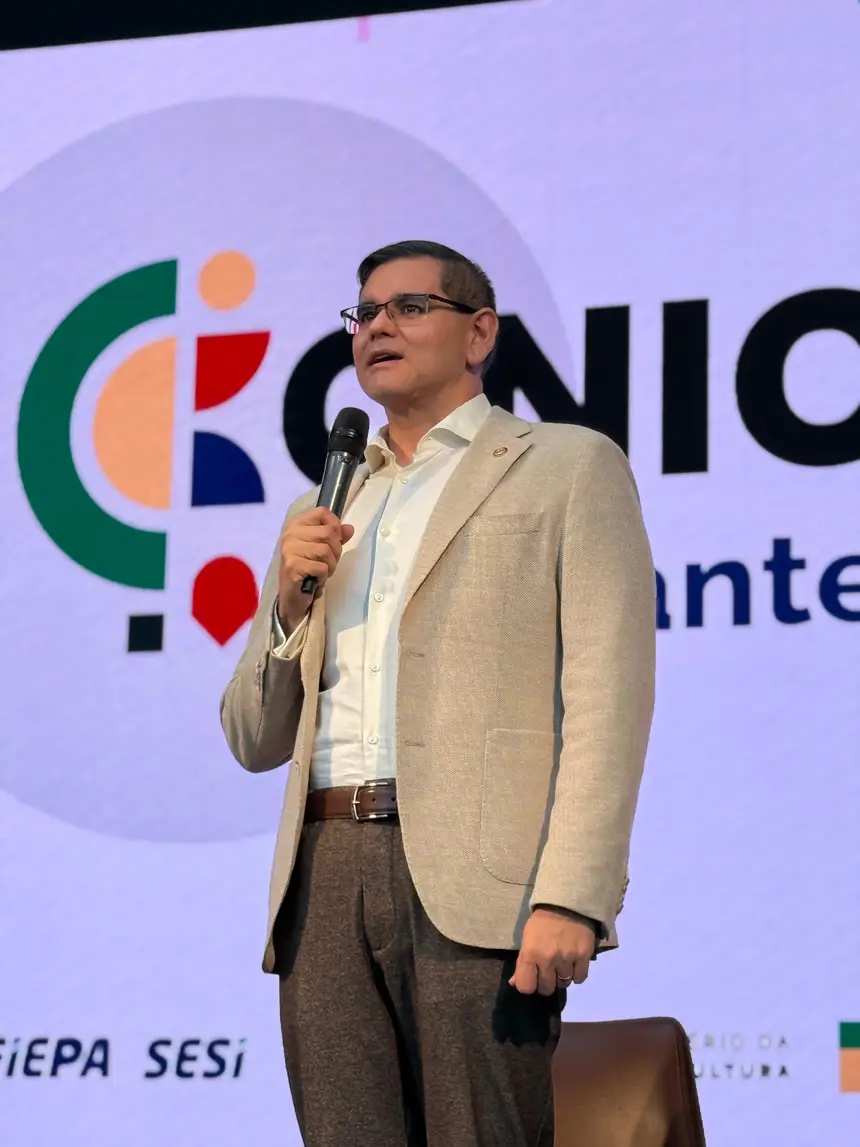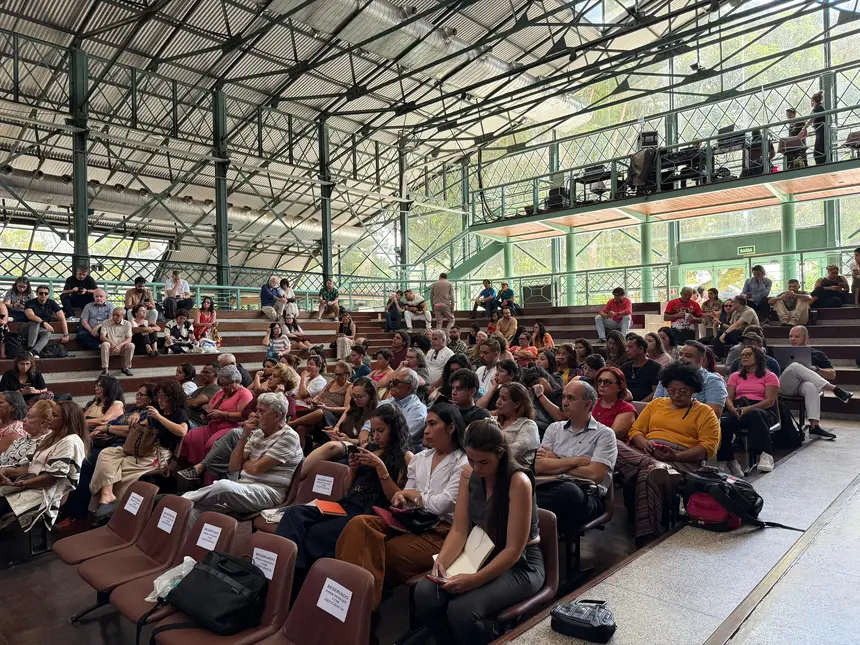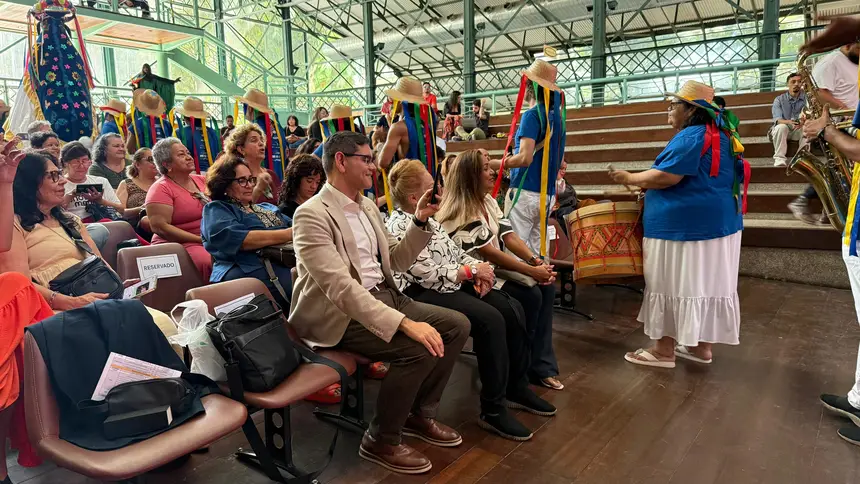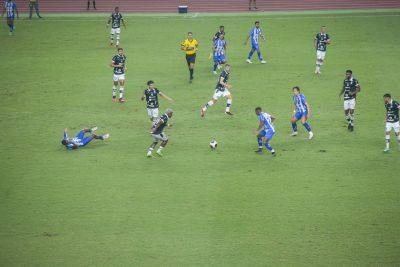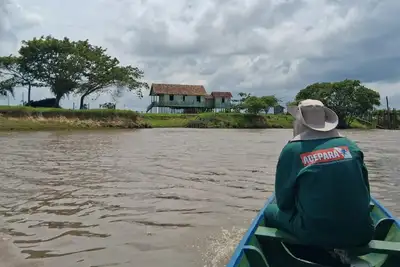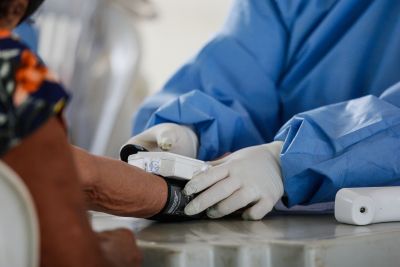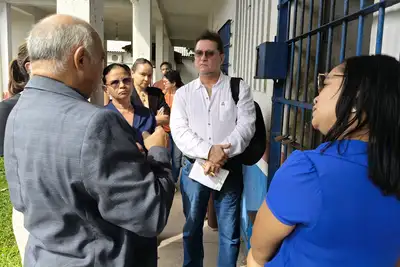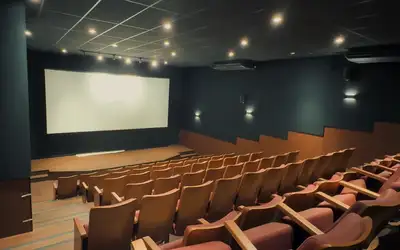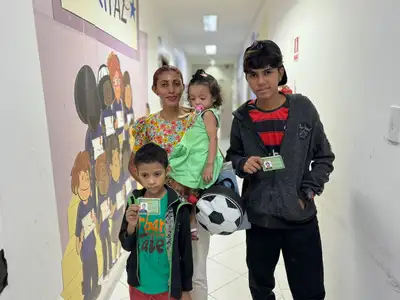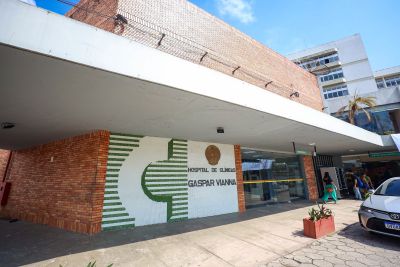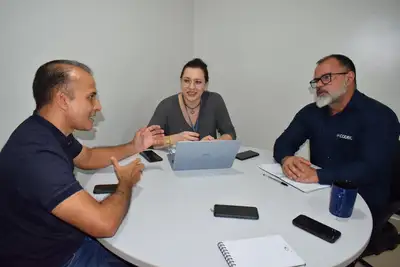Ministry of Culture holds forum in Belém and brings cultural agents closer to funding policy
The 357th ordinary meeting of the National Commission for Incentive to Culture (CNIC) gathers cultural agents for discussions on investments in culture
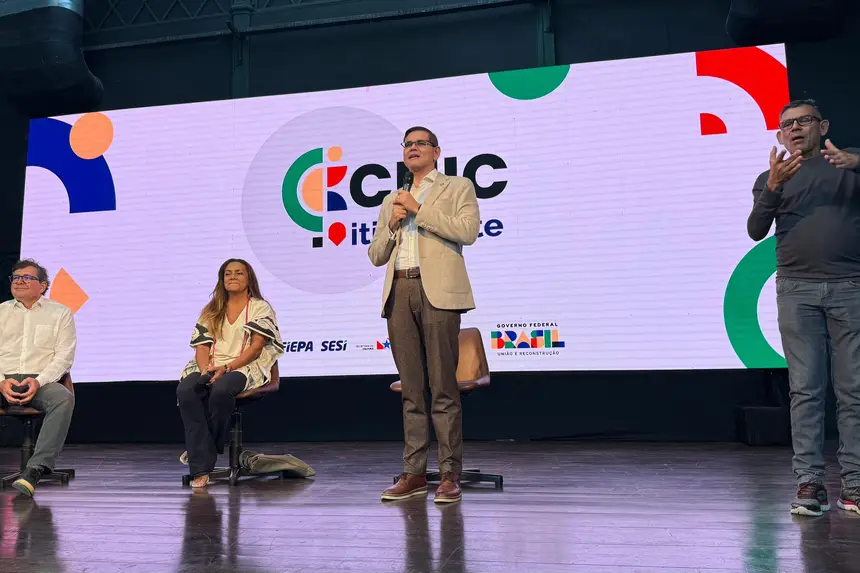
On May 14, 15, and 16, the capital of Pará hosts the Forum for Cultural Incentive – The Cultural Agent and the Rouanet Law, an event that opens the program of the 357th Ordinary Meeting of the National Commission for Incentive to Culture (CNIC), organized by the Ministry of Culture (MinC) in partnership with the Government of Pará.
Composed of 21 members, in 7 benches, the National Commission for Incentive to Culture (CNIC) is linked to MinC and carries out volunteer work directed at the Rouanet Law, aiming to guarantee tax incentives for the projects contemplated.
With the proposal to make the functioning of the Rouanet Law more accessible and transparent, the opening meeting on Wednesday (14), which took place from 9 am to 12 pm, gathered cultural producers, public managers, investors, and representatives from various cultural sectors in the North region. More than 400 people registered through an online form.
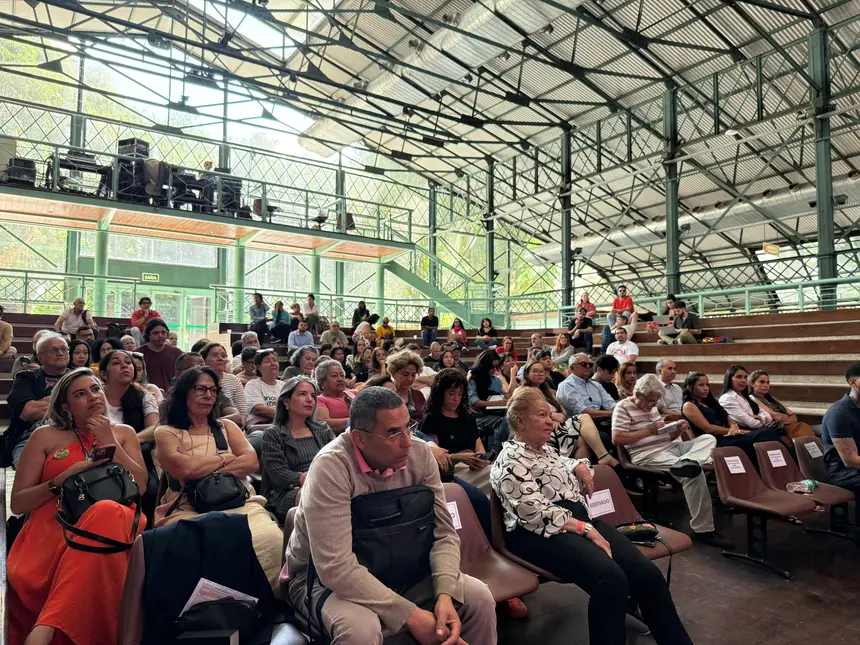
"It is extremely important to have the Ministry of Culture here in the State clarifying about the Rouanet Law and strengthening ties with cultural makers, because in addition to providing greater adherence of these agents to the laws that contemplate them for national and state culture, events like this promote important debates for the maintenance of public policies," said the acting culture secretary, Bruno Chagas.
The program included lectures on the National Support Program for Culture (Pronac) and the funding actions promoted by the State Secretariat of Culture of Pará (Secult). The acting secretary, Bruno Chagas, spoke about investments in the sector and the role of the State in articulating with local cultural agents. Following that, the director of Indirect Funding of the Secretariat of Creative Economy and Cultural Funding (Sefic), Odecir Prata, detailed the mechanisms of the Rouanet Law.
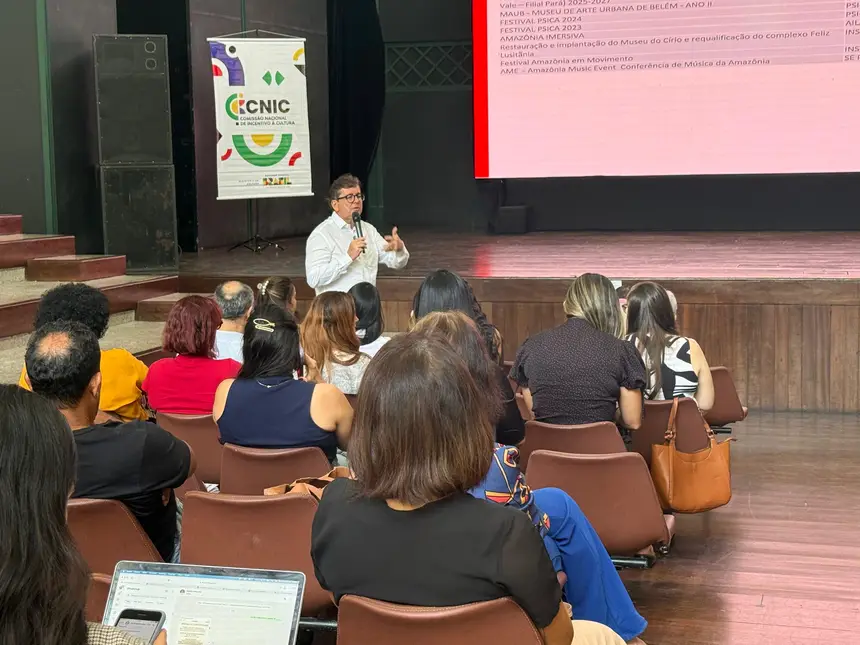
"I cannot fail to emphasize the pleasure of being in the North Region. This meeting only makes sense if it is for the cultural agents. Therefore, the entire team is here with the aim of bringing closer, better explaining how the mechanism works, and showing how it has behaved with the growing participation of the North, Northeast, and Midwest — regions that are the focus of increasingly inclusive policies. Concepts change, evolve, and the mechanism has managed to keep up with this — always with great responsibility," explained Odecir Prata.
In the afternoon, starting at 2 pm, the program continued at the Museum of the State of Pará (MEP), in the Cidade Velha, where sectoral meetings with the CNIC took place. Representatives from the fields of performing arts, visual arts, music, audiovisual, humanities, and cultural heritage discussed demands and financing opportunities through tax incentives. The day ended with the masterclass "Ecovision: Sustainability in Audiovisual," taught by Tiago Santos, audiovisual commissioner and creator of the label that promotes sustainable practices in the sector.
On Thursday (15), at 9 am, the event returns to Estação Gasômetro with a training aimed at proposers and managers, focused on the Normative Instruction and the use of the System for Supporting Cultural Incentive Laws (Salic). The activity will aim to facilitate access to the "virtual office" of the Rouanet Law, a fundamental tool for those who wish to submit projects for CNIC analysis.
Teresa Oliveira, 25, is part of the community library "Cultural Space: Our Library," in the Guamá neighborhood, and registered to participate in the Forum. "I believe that a forum aimed at strengthening communication between cultural agents and those responsible for the Law is very beneficial as it democratizes information and allows everyone to have access to that incentive," she said.
The program of the 357th meeting will conclude on Friday (16), with technical visits to cultural projects in the region that received support through the Rouanet Law. The plenary session of the CNIC, held on the 15th, will be broadcast live on the MinC's YouTube channel.
Text: Painah Silva, Ascom Secult


